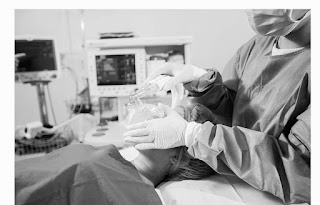Preoperative Measurement of Albumin for Risk Stratification
Preoperative Measurement of Albumin for Risk Stratification
Low preoperative serum albumin in patients undergoing cardiac surgery (CS) is associated with an increased risk of morbidity and mortality postoperatively (independent of body mass index). Hypoalbuminemia is a prognosticator of preoperative risk, correlating with increased length of time on a ventilator, acute kidney injury (AKI), infection, longer length of stay, and mortality. Low-quality meta-analyses support measuring preoperative albumin to prognosticate postoperative CS complications. Based on the moderate quality of evidence, it can be useful to assess preoperative albumin before CS to assist with risk stratification (class IIa, level C-LD).
For patients who are malnourished, oral nutritional supplementation has the greatest effect if started 7 to 10 days preoperatively and has been associated with a reduction in the prevalence of infectious complications in colorectal patients. In patients undergoing CS who had a serum albumin level less than 3.0 g/dL (to convert to g/L, multiply by 10.0), supplementation with 7 to 10 days’ worth of intensive nutrition therapy may improve outcomes. Currently, however, no adequately powered trials of nutritional therapy initiated early in patients undergoing CS who are considered high risk are available. In addition, this may not be feasible in urgent or emergency settings. Further studies are needed to determine when to delay surgery to correct nutritional deficits. Based on these data, we note that correction of nutritional deficiency is recommended when feasible (class IIa, level C-LD).



